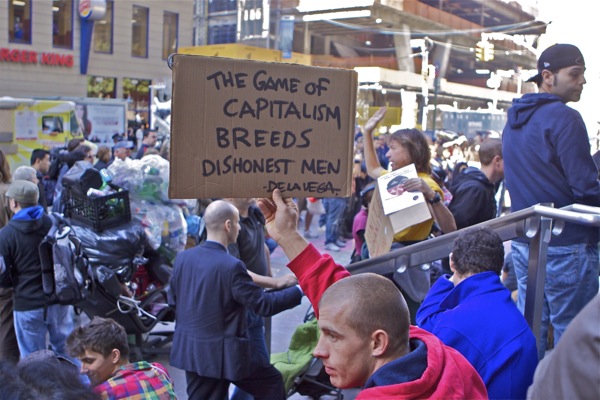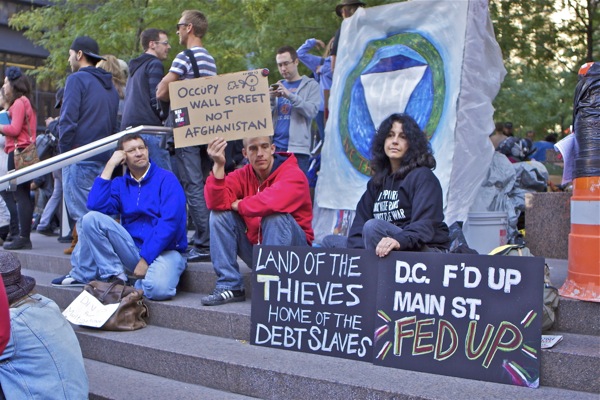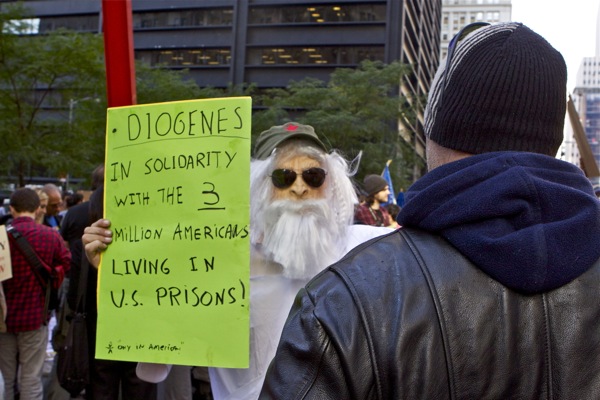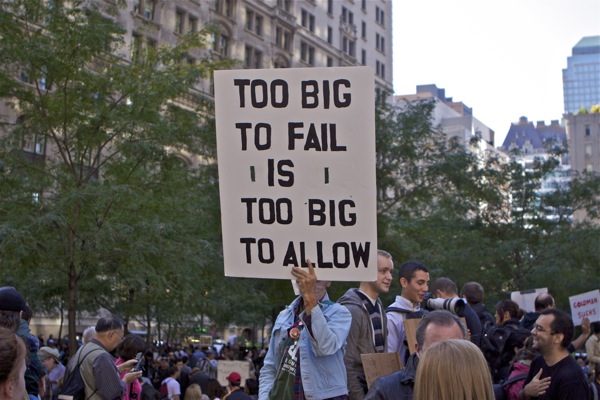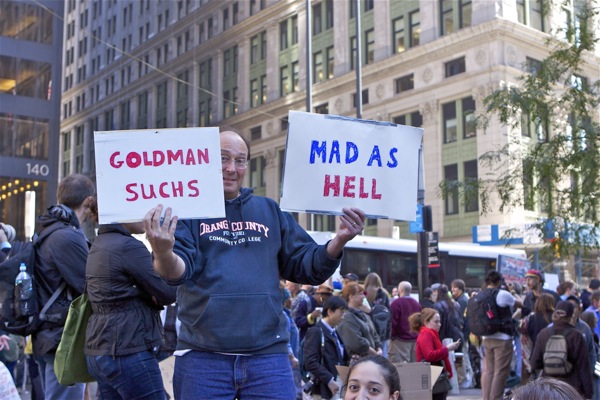From “Do More with Less” to “Do Less With Less”
Over the weekend, the Star Ledger carried an important story about declining staff levels at what are deemed “critical” state Departments, including DEP (see: Report: State work force in deep decline)
So, I thought I’d: 1) correct a fact error in that story (about the highest DEP staff levels which were used as a baseline to contextualize staff cuts); 2) mention a key fact the Ledger ignored, i.e that staff cuts via attrition/retirement are extremely detrimental to performance because of loss of institutional memory and experienced expert staff; and 3) shed some light on the history of DEP resource levels and mission.
We are all too familiar with and disgusted by the Christie Administration’s attacks on public employees – and DEP in particular – under false premises paraded around under slogans like “job killing red tape”.
So we were pleased that the Star Ledger editorial board finally found the courage to call out the lies of Christie Administration’s “job killing red tape” slogans in this excellent editorial:
Sure, we should cut down on any unnecessary bureaucracy. But when politicians like Lt. Gov. Kim Guadagno talk about “job-killing red tape,” or when they denounce “job-destroying” federal regulations, don’t buy into that as some grand strategy to help unemployment.
If we deregulate, people still won’t have jobs. What they will have are weaker protections for the air they breathe, the water they drink and the products they buy.
Getting back to the history.
While the Christie Administration’s DEP Transition Report recommended that DEP “do less with less“, folks might be surprised by the fact that the phrase “do less with less” was actually first used by and a direct quote of Corzine DEP Commissioner Lisa Jackson. It was based in part on a 2008 DEP Permit Efficiency Task Force Report that made that same recommendation for DEP.
I wrote about it at the time in this NJ.com post. As I then noted, that 2008 Report, dictated, if not written mostly by business lobbyists, examined the historical DEP staffing and regulatory role. I highlighted big problems identified by that Report that still remain ignored:
The public would be shocked to learn of some of the major problems the Task Force identified, but did not propose any solutions for. Perhaps this is due to the lack of technical expertise amongst the Task Force members:
1. Severe staff and budget cuts
The Task Force Report acknowledges that severe staff and budget cuts at DEP have hampered their ability to protect the environment:
“During the past two decades, despite an increasing number of rules and regulations, with a corresponding increase in responsibilities and workload, DEP staff levels have been reduced by more than 1,000 employees – about 25 percent. Further reductions are continuing to take place as of this writing.”
2. Erosion of science
The Task Force documented that DEP’s once nationally prominent scientific capabilities have been eroded:
“In the course of Task Force deliberations, two issues arose which were outside the charge of the Administrative Order but which directly impact the efficiency of the DEP. The first is the quality of science and research that provides the underpinning of the policies, guidance, directives and regulations of the DEP. Through the first two decades of the DEP’s history, the Office of Science and Research was one of the most highly regarded programs in the country. However, during the past two decades, budget cuts and reorganizations have undercut the quality of the program. While the Office still does excellent work, the staff simply cannot keep up with the breadth and scope of DEP needs.”
3. Pervasive politcal influence on decisions
The Task Force admitted that DEP is pressured by lobbyists and decisions are often politicized:
“In the absence of a process to establish DEP permit review priorities, individuals and representatives of various constituencies frequently seek to establish preferences in permit review schedules. Such activities are rarely transparent to the public and can add to inefficiencies in the permitting process.”
4. Bureaucratic silos
The Task Force documented that single purpose programs operate in “silo’s”
“The second issue, which has been mentioned in several places in the report, concerns the sometimes overlapping, conflicting and too often overly complex maze of regulationsgoverning the workings of the DEP. As with many governmental bureaucracies, little attention was paid over the years to the cumulative impact of new statutes and regulations.”
5. Failure to consider cumulative impacts
The environmental community has long called for DEP to develop enforceable science based standards to protect ecosystems from what are known as “cumulative impacts”. Instead of addressing this issue, the business dominated Task Force ignored the environment and complained about the cumulative impacts of regulations on the economy:
“Finally, while not a specific focus of the Task Force, there are instances in which the cumulative impact of nearly 40 years of statutes, executive and administrative orders, guidance documents and policy directives has been conflicting, overlapping and counterproductive regulations that have a troublesome impact on permitting efficiency.”
6. Sustainable development and global warming given short shrift
Jackson’s order purported to address sustainable development and global warming:
“b. The report of the Task Force shall also provide recommendations for operational, policy and regulatory changes at the department to provide incentives for and to advance sustainable development projects that contribute to achieving statewide greenhouse gas limits,economic growth opportunities in urban areas and meaningful affordable housing and that, as a result of their location and design, have little or no impact on public health and safety, the environment or natural resources;”
There simply are is no there there – There are no technical recommendations to satisfy this Jackson directive. This calls into serious question DEP’s commitment to sustainable development and global warming policies.
7. Public relations campaign
Instead of substantively addressing any of these complex scientific, legal and policy problems, the Task Force called for more spin over substance:
“On a parallel track during the first month following release of the report, the DEP should make it a priority to brief the executive office, legislative leaders, the regulated community, environmental groups and other community leaders on the details of the report and solicit their support for the effort and their ideas for implementation. The DEP also should carry out a public outreach program which includes media outlets and editorial boards.“
Historically, attacks on DEP staffing levels and regulatory role began back in the early 1990’s, during an economic downturn.
While the Florio Administration at that time was receptive to the business community’s attacks on DEP, they made no real policy, budget, regulatory or institutional changes in response. (See Florio Executive Order #97)
It wasn’t until Republican Christie Whitman took office in 1994 that the business community’s attacks on DEP hit policy pay dirt in Whitman’s STARR Report: (Strategy on Regulatory Relief). Whitman Executive Orders targeting DEP, budget cuts, and regulatory rollbacks rapidly followed, a process very similar to the current Christie agenda.
But, given strong public support for environmental protection, not even Whitman openly called for DEP to scale back its role.
The open call for DEP to actually “do less with less” would have to wait unil the Corzine Administration and the “leadership” of current EPA Administrator Lisa Jackson.
Jackson was the first to call for DEP to “do less with less”. That phrase was first used in a 2008 DEP Report, produced by business lobbyists Jackson invited into the agency. The Jackson Report not only called for DEP to “do less with less” under the pretext of “fiscal crisis”, it suggested that DEP was overly intrusive on the regulatory front (thus conceding a primary conservative ideological critique of government regulation.) The Jackson report found:
“The DEP and EPA grew rapidly, and in the case of the DEP, eventually there were more than 4,000 employees, with responsibilities ranging from cleaning up past assaults on the environment, to permitting new development projects, to protecting and expanding the state’s inventory of open space. The charge given to the DEP throughout the years has been vast, reaching into virtually every aspect of the lives of individual citizens and the corporate and small business communities.[…]
In this time of fiscal crisis, the challenge before the DEP is to develop different approaches to managing, to consider doing less with less, recognizing that this must be done without compromising environmental protection or public health. The residents of New Jersey may want a stimulated economy with less government, but they do not want less environmental protection.”
It was DEP Commissioner Lisa Jackson who first invited business lobbyists to dominate a DEP Taskforce, in comparison, granting a far greater degree of influence over DEP policy than the Christie Red Tape process.
It was Jackson – as a matter of agency policy not business lobbyist spin – was the first to use an alleged “fiscal crisis” to recommend and justify a reduction in DEP staffing, resources, and regulatory role. The Jackson report even implied that DEP’s role was overly intrusive.
The Corzine/Jackson rhetoric and cuts were largely ignored by media and ENGO’s at the time.
Since I’ve been working in Trenton, over time, we’ve gone from a policy of
- Kean/Florio: “do more with more” (increase DEP role and increase resources) to
- McGreevey: “do more with less” (i.e. continue to expand DEP role, but increase productivity) to
- Corzine: “do less with less” (with a fictional aspiration of maintaining DEP role) to
- Christie “do less with less” (shrink DEP role and resources).
Our children with bear the brunt of this sad legacy.


